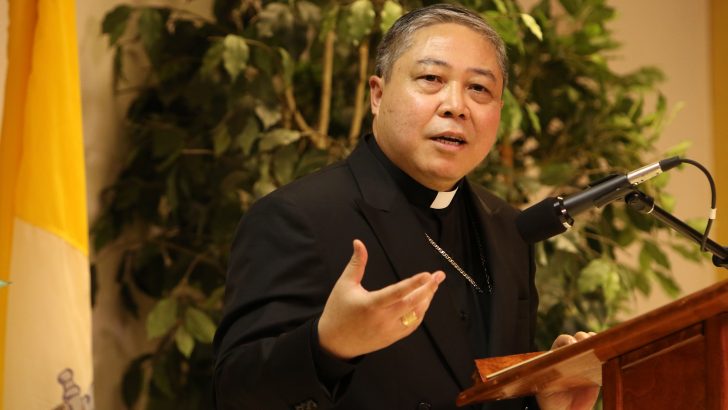Religious leaders play a major role in preventing atrocity crimes by promoting peace around the world – but don’t have the resources to combat it themselves.
Archbishop Bernardito Auza, the Permanent Observer of the Holy See Mission to the UN, said that “religious leaders have much to contribute”, but ultimately it was the responsibility of national authorities to stop atrocity crimes.
Speaking at the launch of the ‘Plan of Action for Religious Leaders and Actors to Prevent Incitement to Violence that Could Lead to Atrocity Crimes’ last week, he welcomed the “spotlight” being put on religious leaders.
However he said: “While they can influence behaviour and mentalities, they do not possess the resources and instruments for stopping mass atrocities that only states possess, like law enforcement agencies and armed forces.”
Archbishop Auza also highlighted part of the Action Plan that says religious leaders have a heightened responsibility in preventing atrocities, as they can influence the behaviour of those who follow them and share their beliefs.


 Archbishop Bernardito Auza.
Archbishop Bernardito Auza. 